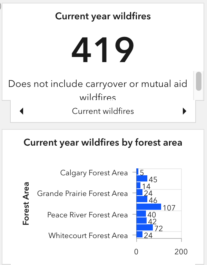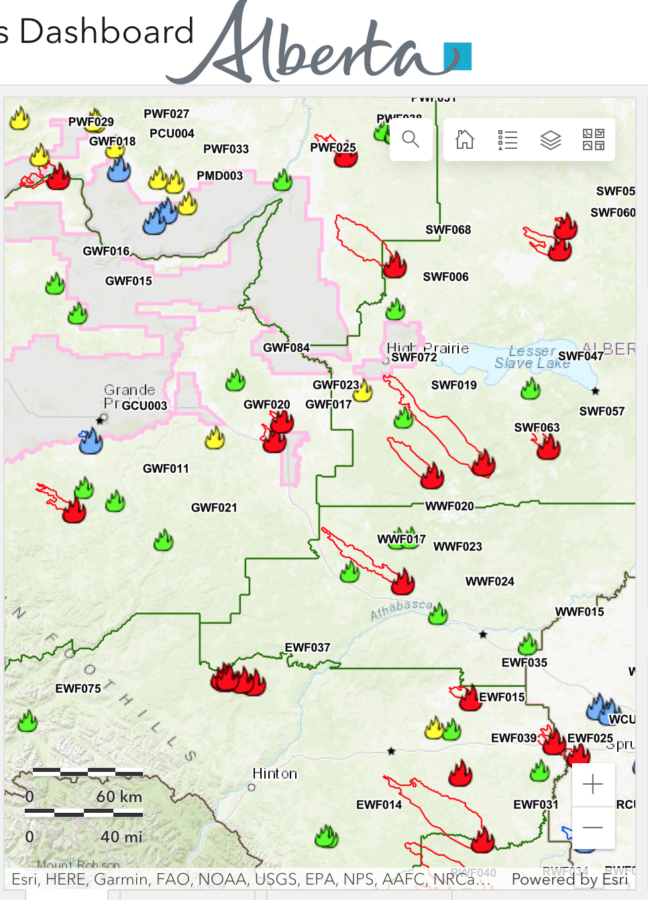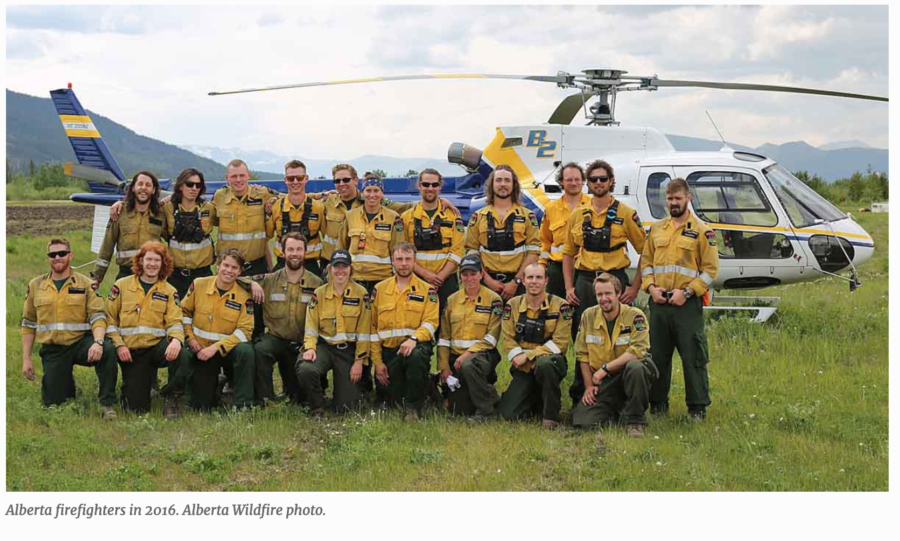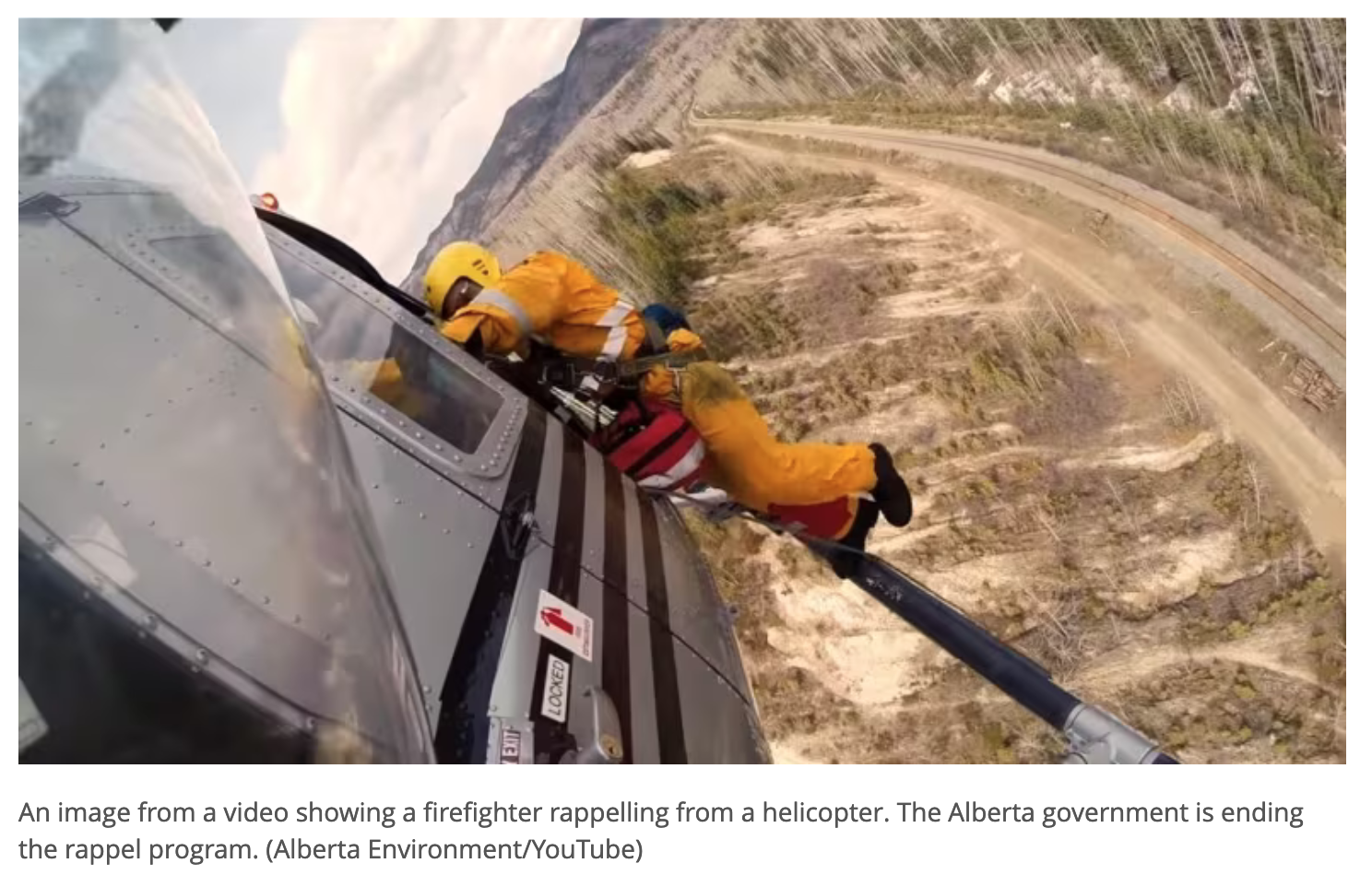Nearly 30,000 people have been asked to evacuate their homes under siege of dozens of wildfires across the western Canadian province; officials declared a state of emergency on Saturday with more than 110 active wildfires, according to a report today by the BBC.
More than 50 schools were closed on Monday morning, affecting over

10,000 students, said Mike Ellis, Alberta’s minister of public safety and emergency services. Some areas had evacuation orders lifted after scattered showers and light winds tempered the fires. About 964,000 acres have burnt since wildfires began over a week ago.
In northern Alberta, more than 80 homes were destroyed in rural areas including Fox Lake, John D’Or Prairie, and Garden River, and more than 3,700 residents in that area were evacuated. “It was pretty far from us, from where we live, but we could see all the smoke coming up and it was just getting worse by the minute,” said resident Johnette Blesse.
Meanwhile, according to the CBC, firefighters criticized cuts to Alberta’s aerial attack teams as the fires burn; a former rappeller says that rappel teams could have made the difference in the ongoing firefight.
Government budget cuts have left the province short-handed in wildfire suppression. “We could have been difference-makers,” said Jordan Erlandson, a former member of Alberta’s Rapattack team.
The program once had 63 firefighters stationed around the province — including at Edson, Fox Creek, and Lac La Biche — and these are communities now threatened by one of the busiest early fire seasons in provincial history.
The rappelling program was cut in 2019 by the United Conservative government.

“They told us the program had been eliminated,” said former member Adam Clyne. “They just said budget.” A 2019 op-ed in the CBC News said, “As wildfire threat grows, UCP cuts to remote rappel team are a risky gamble,” and explained they saw the province’s plan as shortsighted.
“Against this backdrop of increasing wildfire risk and management concerns, the UCP government has announced cuts to its wildfire suppression program,” wrote author Mathieu Bourbonnais. “The proposed cuts and the rationale presented by the UCP government are short-sighted. Without doubt, these cuts will directly impact the safety and livelihoods of rural communities in Alberta. Among the immediate casualties is the Alberta Wildland Firefighter Rappel Program, which since 1983 has been the main line of defence for rural communities against wildfires that start in remote areas. Deployed provincially as nine crews of seven, the men and women in the program are trained to rappel from helicopters and aggressively contain fires while they still are small.”

The New York Times reported that about 24,000 people were out of their homes in the sparsely populated, largely northern areas of Alberta, with dozens of fires burning across nearly 1 million acres. The fire season, typically from March 1 to early October, already has tallied over 400 fires — an unusually high number. People have not forgotten the season of 2016, when fires burned from the forestland into the oil sands capital of Fort McMurray, Alberta.
That fire forced the evacuation of more than 90,000 people, destroyed more than 2,400 homes and businesses, and disrupted production at the United States’ largest source of imported oil. At more than 4 billion Canadian dollars, it remains Canada’s most costly disaster.
As was the case during the Fort McMurray fires, many of the current evacuees, a group that includes thousands of members of First Nations communities, have sought refuge in Edmonton, the province’s capital and second-largest city. This year’s fires are fueled by the same weather phenomena that caused the 2019 bushfires in Australia: GRIST Magazine reported that oil production was forced to halt after a state of emergency was declared this weekend.
The province, Canada’s largest producer of crude oil and natural gas, has discontinued production of the equivalent of 145,000 barrels of oil amidst the fires. And though recent rain showers have slowed the progression of some fires, storms could also bring lightning, according to Marc-André Parisien, a research scientist at the Canadian Forest Service.
The Alberta wildfire status dashboard is [HERE].
Bill Gabbert wrote about the rappel program back in 2019.

Time for some more news. Things are happening.
Based on your continuous coverage, I understand and appreciate that uncontrolled wildfires burning in Canadian provinces including Alberta and British Columbia are life threatening and newsworthy to the US audience.
Admittedly, it’s early in the season, if not unusual, for this type of wildfire behavior in Canada. It could be indicative of early El Niño + climate change behavior contributing to these unusual events.
If you hope to continue with Bill Gabbert’s legacy, it’s important you are honest with the reader.
Thanks, Martin, we’re working on it.